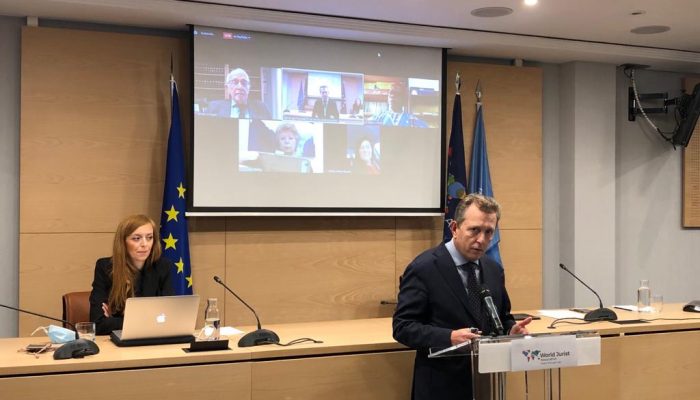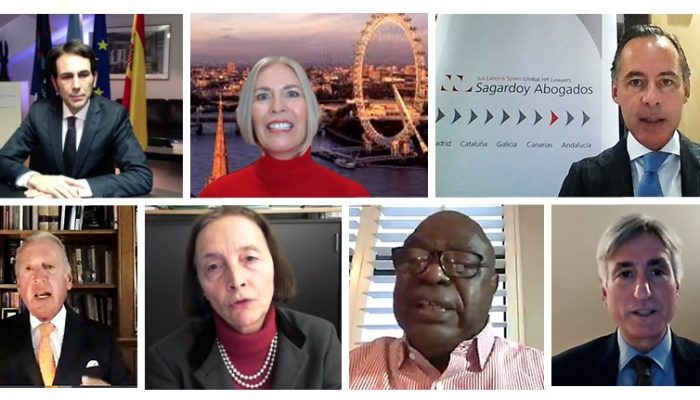The World Jurist Association presented an expert declaration written by more than 1,000 legal professionals from different countries denouncing that the December 6, 2020 parliamentary elections in Venezuela lack the necessary guarantees to be considered valid elections under the international law . According to this legal analysis, the elections, which have not been recognized by either the European Union or the Organization of American States, will be null and void.
(You may sign the Declaration HERE )
With this initiative, the WJA seeks to warn the world’s public opinion about Nicolas Maduro’s attempts to elect a new National Assembly through a call that does not meet the minimum democratic requirements. Today, after five years of disregard for the Assembly by an illegitimate executive, the elections convened will be held amidst evident signs of lack of transparency, and harassment towards the few unwelcomed candidates for the government. The signatories call attention to the fact that the Supreme Court of Justice, in contravention of the Constitution of the Bolivarian Republic of Venezuela, appointed the five directors of the National Electoral Council, thereby permitting them to modify the electoral laws at their discretion.
The accusation raised by the WJA bears the support of jurists of outstanding prestige and international recognition such as Álvaro Rodríguez Bereijo, President Emeritus of the Spanish Constitutional Court, and writer of the EU Charter of Fundamental Rights; Marie-Aimeé Peyron, President of the Paris Bar Association (2017-2019); Viviane Reding, Vice-President of the European Commission and Commissioner for Justice (2010-2014); Peter N. C. Umeadi, Professor and Justice Emeritus of the Anambra State Court, Nigeria; David Mills, Professor of Law at Stanford Law School; Augusto Trujillo, President of the Colombian Academy of Jurisprudence; and Katharina Miller, President of the European European Women Lawyers Association, among others.
In like manner, Johann Kriegler, Justice of the Constitutional Court of South Africa until 2002, is a signatory to the document. Justice Kriegler was appointed in 1993 as Chairman of the Independent Electoral Commission, which conducted the first post-apartheid elections with real universal suffrage in his country. Nelson Mandela’s collaborator has stated, on the current Venezuelan process, that having seen how a dictatorship evolves towards democracy, today we are witnessing the steps taken by an old democracy towards the strengthening of a dictatorship. Kriegler is considered the world’s leading authority on electoral processes.
On the basis of the verified data and in the absence, in the upcoming Venezuelan elections, of the political and legal guarantees already outlined, which are necessary for an election to be regarded as free and democratic, the signatories of the Declaration hold that such elections are invalid and reject their celebration. Consequently, they hold that in order to guarantee the protection of human rights in the country, the legitimacy of the current Venezuelan National Assembly must be preserved until genuine free, inclusive and democratic elections are convened.
This declaration will be presented at the United Nations, the European Parliament and other International Institutions and Courts over the world to continue condemning this electoral fraud in Venezuela. Jurists from around the world are called to support the restoration of the Rule of Law in Venezuela. You may sign the Declaration HERE
READ THE WJA DECLARATION ON THE VENEZUELA ELECTIONS
To sign and support this Declaration CLICK HERE
LEA LA DECLARACIÓN DE LA WJA SOBRE LAS ELECCIONES VENEZUELA
Para firmar la Declaración CLIC HERE


